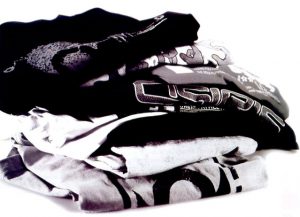When I was growing up, I would watch my grandma try on gowns and coats she’d brought home on “appro” (or approbation) from the local women’s store, deciding, at her leisure, what to she would like to keep and pay for and what to return back to the store free of charge. It was a concept that was perfect for the consumer but never really came to fruition. It turns out that all time later, this concept might actually gain traction and may very well be the future of how we buy shoes online, and maybe even clothes.
This new buying trend won’t just be at Amazon, which recently announced this service for its Prime members, who won’t be charged for trying up to fifteen items per week in the comfort of their home. This trend is set to change the way we shop in all areas of retail in the future.
In December, Debora LaBudde started Memo, which lets online shoppers try out fine jewellery from emerging and established designers for three days before they are asked to return or purchase the items. The practice of allowing a customer to take product home before making a purchase has long been a tradition in the jewellery business, but it is most often reserved for V.I.P. clientele, but it is thought that this offer should be extended to regular clients in the hope it will influence purchasing decisions for those who are unsure whether to commit to the purchase or not.
Colleen McKinnie helped found Lyon & Post which sells casual clothes, including active wear, women’s shoes and swimwear. Members add items to a ‘try it on’ check out system and within a day, the top four items are sent. After a week, members can return whatever they do not need in a prepaid return bag, at which point they’re billed only for what they have kept.
After Filling out a fashion profile in Bungalow Clothing, which Rob Wright founded in 2013, clients are paired with stylists. After previewing things in a “Dressing Room” and making any desired adjustments, shoppers receive up to fifteen items sent to them for a five-day try-on period.
For men who are short on time, there is Bombfell, a men’s casual wear subscription service which started shipping casual and formal clothing, men’s dress shoes and accessories to subscribers in 2011.
In an Online age, Bombfell is targeted in the latter; they are focused on utilizing technology to create the personal styling process far more efficient. Private-label inventory was added to the website this past year. Clients choose how frequently they receive shipments and the number of things they get and they have seven days to choose which items to keep.
Nina Lowe and Andrea Campbell, who met while training for a marathon, chose to take the private styling support one step further when they began Front Door Fashion at 2013. Their solution: a personal stylist that can send whole looks — clothing, jewellery, women’s pumps and other women’s shoes and accessories — for events like a date night, work or events. A stylist pulls up to 20 items from our warehouse and meticulously styles them four to six full outfits, mixing and matching pieces to get the most out of each look. The outfits are accompanied by thorough notes describing how to wear each appearance. The trial period is five times; a $100 deposit is applied to orders or reimbursed in full when everything is returned.
Vanessa Stofenmacher, the creator of Vrai & Oro, a direct-to-consumer jewellery start-up, is counting on the try-on business model to revolutionize engagement-ring shopping. If an engagement ring is a symbol of two lifetimes linking together, the company believe the ring should be a joint decision. The try-on attribute enables her — or him to select three layouts and see the rings in person before committing, while still giving her spouse the chance to pick the perfect diamond on her or his own. Clients can test three sample rings for seven days in exchange for a fully refundable deposit of $50.
What if You would like to shop across sites? Ankush Sehgal is the founder and the chief Executive of Try, Which for $2.99 per month lets customers try on things for seven days from over 30 online retailers, such as Yoox and Mr Porter. The actual reason why you have to pay upfront is because merchants cannot trust consumers to not run away with the item. In Today’s world, we could address this problem with technology.
